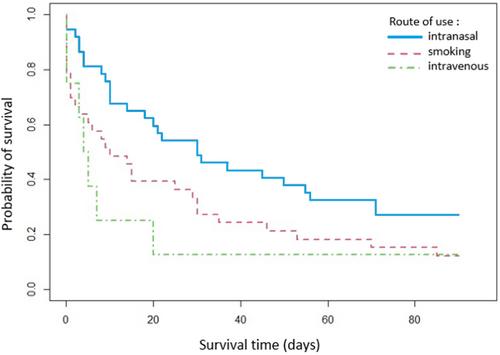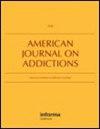Predictors of abstinence maintenance after cocaine inpatient detoxification: A prospective study
Abstract
Background and Objectives
Cocaine is a highly addictive substance, and with no approved medication for cocaine use disorder (CUD), leading to a heavy burden. Despite validated psychosocial treatments, relapse rates after detoxification are very high in CUD. Few consistent factors can predict abstinence after detoxification. Our study, therefore, aimed at identifying factors predicting abstinence among CUD patients after inpatient detoxification.
Methods
Eighty-one CUD inpatients were included during detoxification and characterized for clinical and sociodemographic data at baseline and at a follow-up of 3 months after discharge, including a standard measure of their abstinence duration from cocaine. We performed Cox univariate analyzes to determine the factors associated with abstinence maintenance, followed by a multivariate Cox regression to identify independent predictors.
Results
Abstinence maintenance was shorter in patients injecting cocaine (hazard ratio [HR] = 5.16, 95% confidence interval [CI]: 2.01–13.27, p < .001) and using cocaine heavily in the month before inclusion (HR = 1.03, 95% CI: 1.00–1.06, p = .046). Conversely, abstinence maintenance was longer in patients with longer inpatient detoxification stays (HR = 0.96, 95% CI: 0.94–0.99, p = .015) and prescribed with selective serotonin reuptake inhibitors (SSRIs) (HR = 0.30, 95% CI: 0.16–0.56, p < .001).
Discussion and Conclusions
Patients with severe CUD may require longer inpatient stays to achieve abstinence. Regarding SSRI prescription, more specific studies are needed to provide stronger recommendations about their use in clinical practice.
Scientific Significance
Our findings suggest several modifiable factors to improve inpatient treatment response in CUD. As there are no specific recommendations about the optimal duration of inpatient stay, our results could pave the way for evidence-based guidelines.


 求助内容:
求助内容: 应助结果提醒方式:
应助结果提醒方式:


